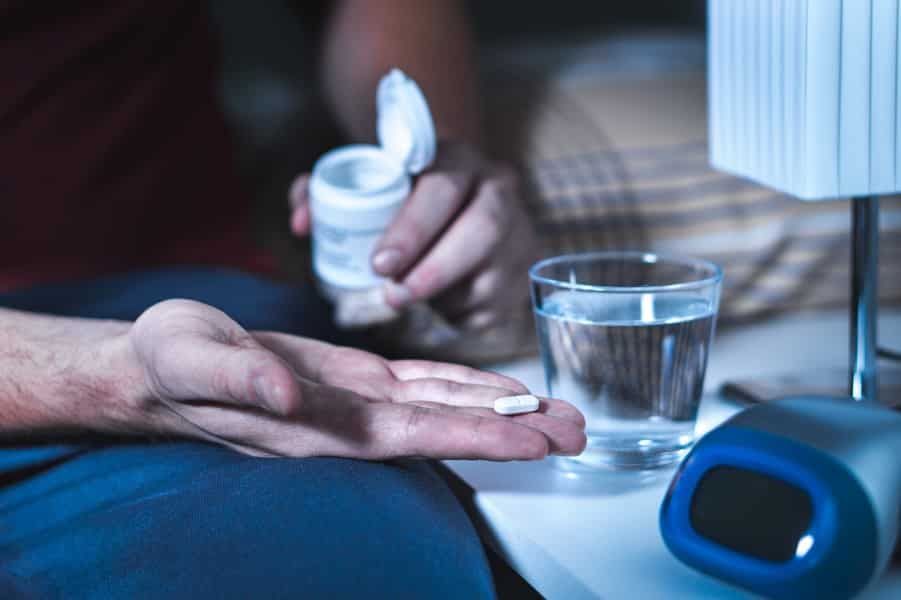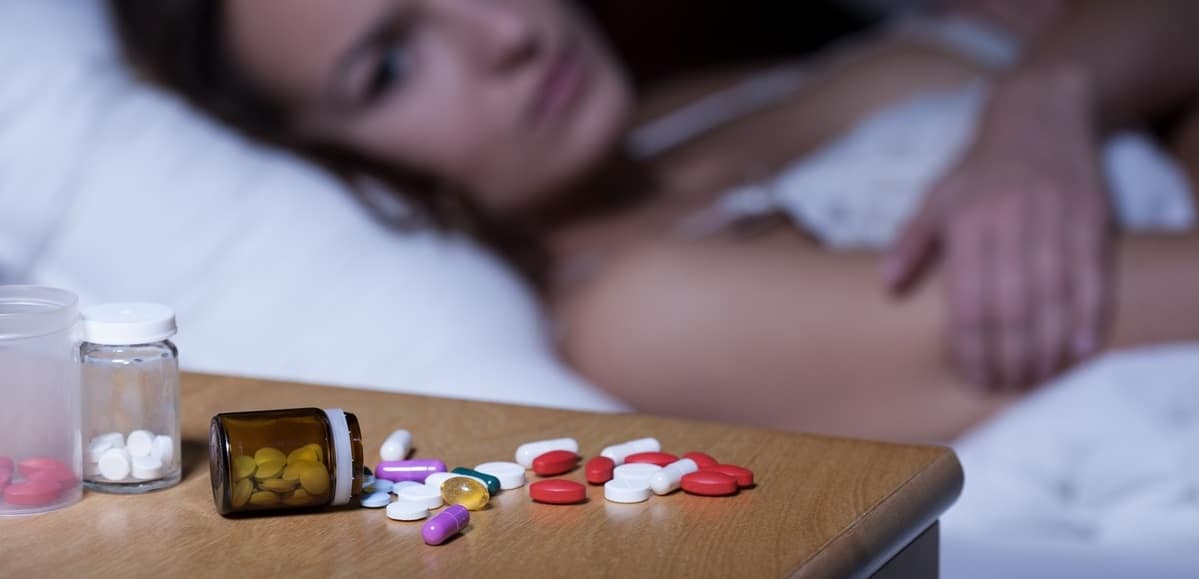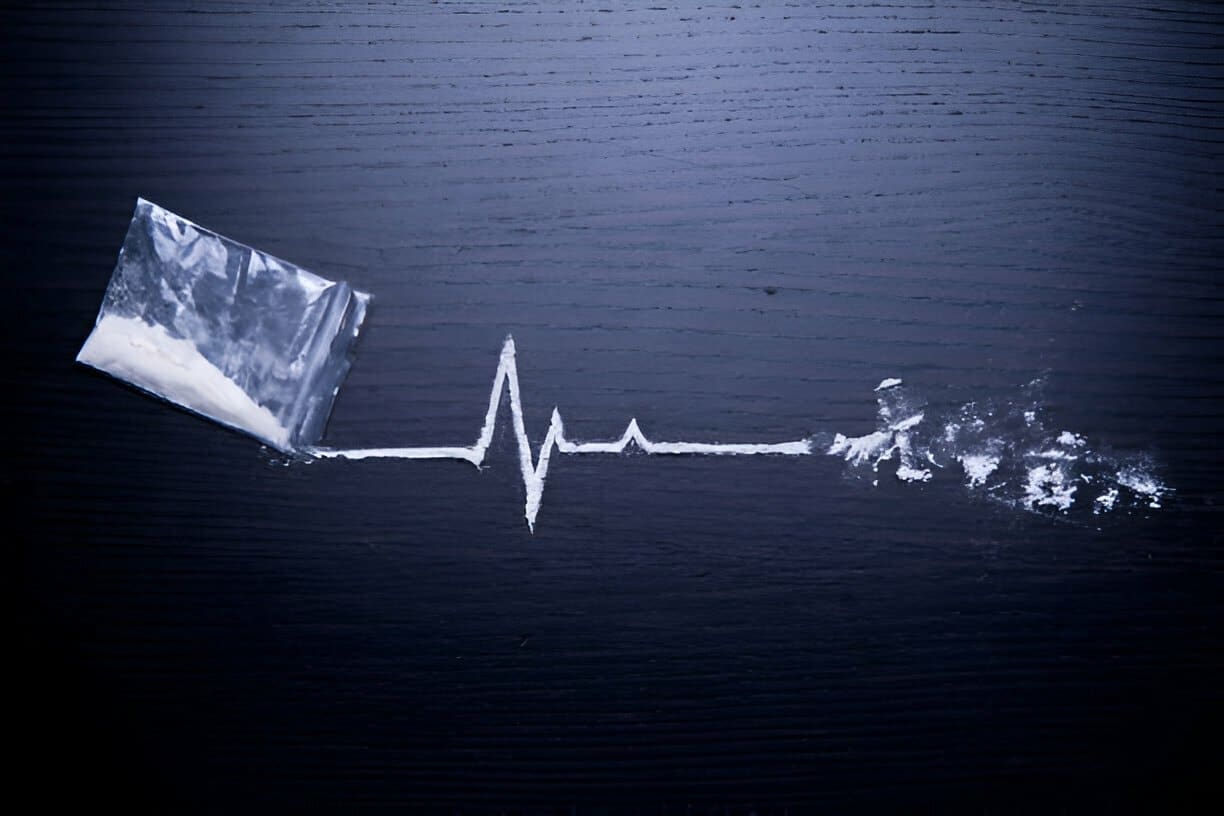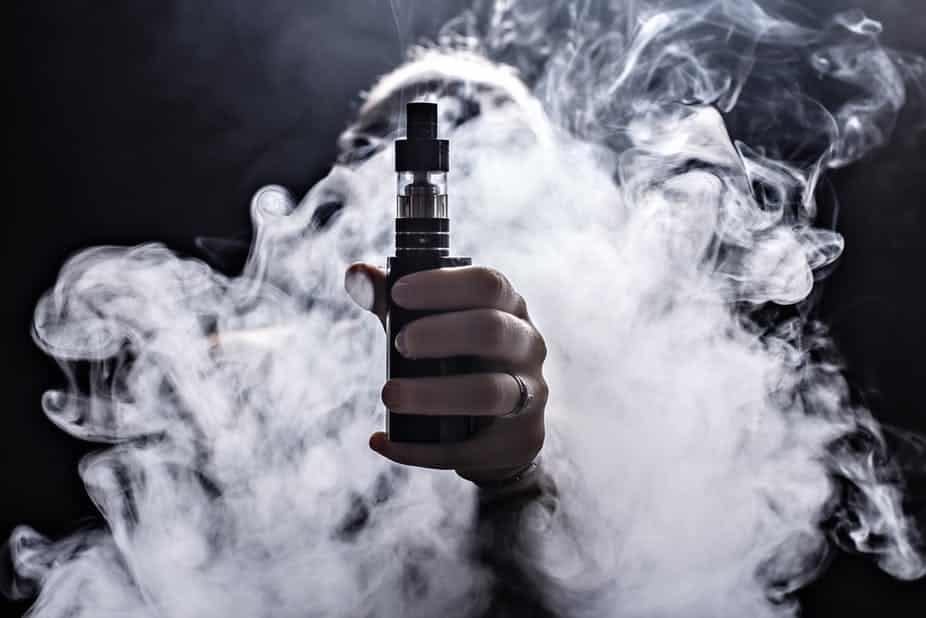Ambien is the most well-known brand name for the zolpidem drug, primarily used as a sleep medication. Zolpidem shortens the time it takes for a person to fall asleep (on average, by about 15 minutes) and lengthens sleep in higher dosages. When nonpharmacological treatment has failed or is still being used, zolpidem is usually administered as a second-line medication.

Zolpidem is a hypnotic (sleep-inducing) member of the imidazopyridine class and a non-benzodiazepine (a type of medication with very similar actions and qualities to the benzodiazepine class). Zolpidem acts by binding to gamma-aminobutyric acid (GABA) receptors in the brain and central nervous system, increasing GABA activity and thus providing calming effects in the brain and body.
On this page, there will be references to zolpidem and Ambien interchangeably because of the similarities between them.
If your loved one needs support dealing with an Alcohol Addiction, contact us today on 0800 999 1083. We can help you by recommending treatment options.
Although it is not illegal in the UK to possess or use Ambien without a prescription, misuse of the drug can lead to addiction. As a result, Ambien is typically given for short periods, up to two weeks in some situations, and much less in others.
Zolpidem is a sedative-hypnotic medication that is used to treat insomnia. It can aid in treating sleep disorders such as insomnia by balancing brain chemical levels. Zolpidem is offered in various immediate-release formulations, including Zolpimist, Edluar, Intermezzo, and Ambien.
Ambien is a brand name for the generic Zolpidem, widely used as a sleep aid by doctors. It has, however, been linked to harmful and complex sleep-related behaviours, including sleep-eating and sleep-driving. These behaviours are exacerbated when the medicine is taken in high dosages or when it is mixed with alcohol or other sleep medications.
Ambien activates the GABA neurotransmitter in the brain. The activity linked with insomnia is reduced by increasing GABA synthesis. In layman’s terms, Ambien helps to induce sleep by slowing down brain activity.
Nonetheless, Ambien has the potential to impact other parts of the brain. It can sometimes stimulate the reward or pleasure centre of the brain, causing a surge of feel-good (dopamine) chemicals to be released. These molecules are responsible for some people’s euphoric effects when using the substance.
However, as the brain adapts to the presence of Ambien, dopamine production diminishes, leading to a tendency to raise the dose to achieve the desired benefits, which frequently leads to physical dependence.
Addiction is primarily a neurological condition, precisely one involving the brain’s reward system. When someone engages in a particular behaviour (for example, taking zolpidem and experiencing its effects) repeatedly over time, reward centres in the brain – including the ventral tegmental area and the amygdala – begin to produce more significant quantities of chemicals such as dopamine (associated with feelings of well-being, pleasure, and reward). When that behaviour is engaged, the individual feels compelled to repeat that behaviour.
Dopamine production becomes increasingly associated with and reliant on that behaviour as the brain is repeatedly exposed to it. The affected individual is compelled to repeat it to feel the pleasurable effects it causes (and to avoid the negative consequences of dopamine deficiency that result from not repeating the behaviour), even if they are aware of any negative consequences. Addiction is the term used to describe this compulsion.
Tolerance and dependency can develop as a result of zolpidem use and the psychological phenomena of addiction. Tolerance develops when a person consuming a substance becomes accustomed to particular chemical levels in their system over time. They need to take ever higher dosages to achieve the same effects as they did with smaller doses. Similarly, dependence develops when a person becomes reliant on the presence of a substance in their system for it to function normally. Their brain and body may go into a period of abnormal functioning if the substance is suddenly withdrawn from the system (i.e. if the person stops taking it); withdrawal syndrome is the manifestation of various potentially unpleasant and dangerous symptoms during this period of abnormal functioning.
Ambien has a moderate risk of abuse and dependence. It is similar to benzodiazepines like Xanax in terms of drug abuse and dependence. Despite the low risk of addiction, case studies suggest that when used at larger doses, Ambien may have misuse potential, even in people who have never used drugs or alcohol before.
Some people suffer from zolpidem abuse because of its sedative qualities. Others may become physically or psychologically dependent on it to sleep, and some may raise their dosage if they can’t sleep.
People who take Ambien every night for more than two weeks may develop a tolerance to the medicine, which means it will no longer help them sleep. There’s a chance they’ll get a severe physiological dependence. Ambien dependence increases when the drug is taken regularly for more than a few weeks or when it is abused at excessive doses. When people who are addicted to Ambien quit using it, they may experience withdrawal symptoms.
Ambien abuse isn’t just a problem on the streets. It’s also a problem for those who get the medicine on a prescription for valid medical reasons. Because of tolerance, people like pilots, truck drivers, and workers who have erratic hours may abuse Ambien – especially at high doses. If you’ve been abusing Ambien, you may have withdrawal symptoms if you go without a dose for an extended time.
When you have a high tolerance to the drug and when you take it regularly, you can develop an addiction to it. Ambien use can lead to dependence, making you feel unable to operate normally without it. When Ambien addiction sets in, quitting on your own can be incredibly difficult. Ambien works on the GABA receptors in the brain in a similar way to addictive medicines like benzodiazepines. As a result, you may develop a strong need for more of the effects, leading to misuse.
Those with a history of substance misuse are the most vulnerable. If you’ve ever abused powerful drugs or non-benzodiazepines, you’re more likely to do so again. Because of the substantial danger of physical and mental dependence on Ambien, your body may require more of the drug to obtain the desired effects or to feel normal.
Because tolerance to Ambien develops quickly, you may notice that the dose you were prescribed has less of an effect over time. This is common with Ambien, so increasing the dosage may be tempting. However, doing so without first consulting a doctor is considered prescription drug misuse.
If you take Ambien in any way other than as directed by a doctor, you risk developing a full-fledged addiction, especially if you’re taking it to get away from your issues. You need to know that if your Ambien use is causing problems in your daily life, it’s time to seek expert help.
Ambien is a sedative drug, which means it might impair reactions and reasoning. It’s not uncommon for the effects to continue after you wake up. These longer-lasting side effects are more likely in women who take an extended-release drug.
Ambien is not always used for the treatment of insomnia. In reality, some people who use Ambien do not feel drowsy or fatigued – instead, they feel euphoric. The user’s desire to keep taking the medication stems from this emotional state.
Various withdrawal signs and symptoms may appear when Ambien use is abruptly stopped, or the dose is rapidly reduced. Withdrawal symptoms linked with relatively short-acting sedative-hypnotic drugs like Ambien might occur 6-8 hours after the final dose in some situations. These signs and symptoms could include:
Ambien withdrawal symptoms were recorded within 48 hours of the last dose in clinical trials and included:
Several factors can influence the severity of sedative withdrawal symptoms. These may include the following:
Sedative usage duration or chronicity: shorter consumption periods may be linked to a lower risk of severe withdrawal symptoms.
Dosage: Using a high dose for an extended length of time can raise the risk of severe withdrawal.
Age: severe withdrawal symptoms may be more common in older persons.
The presence of coexisting medical or psychological issues: individuals who have co-occurring medical or mental health issues are more likely to experience more severe withdrawal symptoms.
Abuse of Ambien can result in a variety of immediate adverse effects, including:
Ambien is solely intended for short-term use. Those who abuse the medication for an extended period, however, may encounter the following negative effects:
Ambien is widely used by stimulant addicts to ‘come down’ after using stimulants like cocaine, methamphetamine, amphetamines, and MDMA. When you use Ambien for a recreational ‘high,’ you might strive to stay awake to avoid the drug’s adverse effects. As a result, you may experience hallucinations. Visual distortions, mild euphoria, and reduced anxiety may occur when the drug is used recreationally.
An Ambien overdose, like other non-benzodiazepines, can be fatal. At the same time, the drug is unlikely to cause an overdose when taken alone and in amounts recommended by a doctor. It is still possible when combined with other substances – especially alcohol, opioids, tricyclic antidepressants, and other non-benzodiazepines or benzodiazepines – or consumed in ways or doses other than those recommended by the doctor.
Slurred or incoherent speech, drowsiness, hypotension, nystagmus (involuntary eye movement), ataxia, respiratory depression, coma, and cardiorespiratory arrest are symptoms of a zolpidem overdose. Call an ambulance right away if you notice any of these symptoms in someone you know who has taken zolpidem.
Because of the concerns mentioned above, zolpidem addiction shouldn’t be disregarded (in addition to the innumerable negative outcomes of addiction in general, including serious threats to bodily and mental health). Zolpidem addiction treatment can literally save a person’s life. Even if the user’s life is not in immediate danger, treatment can hugely positively impact an addict’s quality of life, relationships, and self-esteem.
Substance abuse can both result from and cause mental health issues. Some people suffering from poor mental health choose to engage in substance abuse as a kind of escapism or self-medication. At the same time, substance abuse itself can have profound physical and psychological consequences.
The presence of a dual diagnosis makes addiction treatment more difficult since both the addiction and the co-occurring disorder must be treated at the same time, and the treatment of one can affect the treatment of the other. For example, some medications which would typically be prescribed in addiction treatment may not be appropriate in the presence of a co-occurring mental health disorder. As a result, dual diagnosis frequently needs additional professional care.
It’s difficult to tell when you’ve developed an addiction to Ambien, especially if you’re following a doctor’s instructions to the letter. Most people who use prescription pharmaceuticals underestimate the risk of being addicted because they assume that anything a doctor recommends is safe to ingest. They only realise they’re having trouble coping without their prescription when they try to quit.
Most people who take prescription medication have no idea that their current use may be considered abuse, so they are surprised to discover that they have acquired an addiction. However, taking your prescription can reveal whether or not you are affected. If you’re taking greater dosages of Ambien than your doctor recommends, you may have developed a tolerance to it and are now discovering that it’s no longer providing the same effects.
However, if you’ve moved to take Ambien during the day and are now using it for purposes other than sleeping, you’ve most certainly developed a problem. When your prescription for Ambien runs out, you may become panicked or agitated, which indicates addiction. You might go to multiple medical professionals to ensure your prescription is filled. Alternatively, you could look into alternative ways to get your medication if your doctor refuses to refill it.
You may have attempted to quit or cut back on your use but could not do so. This is because if you aren’t taking Ambien, your body will most likely need it. Another symptom of addiction is if you continue to use the prescription even though you or those around you will suffer unfavourable repercussions.
Addiction treatment is a broad and complex area, with many various approaches to zolpidem addiction treatment – and, of course, each person’s journey through addiction and treatment is unique.

Nonetheless, most experts agree that residential rehab is the best option for a complete and long-term recovery. Rehab provides the medical support and assistance needed to make zolpidem detox and withdrawal as safe and comfortable as possible. Rehab centres offer treatment in safe, secure, peaceful, friendly, and confidential conditions, allowing patients to focus on healing and recovery to the greatest extent possible. Several high-quality rehab centres can be found all throughout the United Kingdom, and they have considerable experience treating zolpidem addiction and offer a variety of treatment approaches, therapy techniques, and additional services.
Stopping Ambien use suddenly, especially for people who have been taking it for a long time and at larger doses, can be harmful. Due to the risk of experiencing potentially severe withdrawal symptoms, such as seizures, stopping without medical supervision may not be advisable when the physical dependency is severe.
Detox under medical supervision can make quitting Ambien easier. Though supervised medical detox can be done in an outpatient setting, Ambien withdrawal management is best done in a detox centre or inpatient addiction treatment facility when there are more severe withdrawal dangers.
While detox is a crucial initial step, it is rarely adequate to help someone recover from drug addiction in the long run. Continuous treatment can more comprehensively address the individual’s underlying thoughts, feelings, and behaviours that lead to Ambien misuse in the first place, allowing them to maintain recovery throughout time and avoid relapse. An evidence-based rehab programme can assist a person in learning the skills necessary for long-term recovery. Every person’s treatment will be different; however, it may include the following:
Inpatient treatment entails 24-hour care in a residential facility, where individual and group counselling, various therapies, psychiatric care, education, and other services are used to help the individual understand and resolve the issues that led to Ambien abuse, as well as develop coping strategies.
Outpatient treatment, like inpatient treatment, typically consists of individual and group counselling, treatments, psychiatric care, education, and other services. Individuals in outpatient programmes, however, return home or to a sober living facility after their clinic-based visits are completed each day.
Inpatient treatment has several advantages, including 24/7 medical support, on-site therapy sessions and, where necessary, prescriptions; a comfortable, secure, confidential, substance-free environment in which to focus on healing and recovery; on-site facilities such as gyms and kitchens; and the support of a peer group who understands the challenges and vicissitudes of addiction and substance abuse.
Outpatient treatment is a good option for people who don’t want to take time away from work or family obligations to go through a full residential treatment programme; appointments like therapy and health checkups can be done at the facility, but addicts must complete the rest of the treatment programme on their own. Outpatient treatment, however, does not separate addicts from the daily context in which addiction develops, making relapse and even treatment failure far more likely.
While these programmes are not professional treatment, they do establish a plan for long-term rehabilitation and serve to supplement the benefits of more proper professional care. Individuals receive assistance from their peers. Some people choose a sponsor or a peer who is further along in their recovery to help them along the way.
Aftercare services, which may include ongoing counselling, continued support groups, sober living communities, job placement assistance, and alumni activities, help individuals sustain long-term sobriety beyond the formal treatment programme.
To avoid the risks of severe or difficult withdrawal, sedative-hypnotic withdrawal may require medical supervision and treatment with benzodiazepines or other comparably long-acting sedating drugs.
People who want to stop using Ambien should talk to their doctor about the possibility of withdrawal symptoms and how to taper off the drug gradually to avoid withdrawal.
Rehabs are flexible and responsive environments, and it’s impossible to describe a single universally applicable addiction treatment process. However, there are some similarities between treatment programmes and individual rehabs, and it’s possible to sketch out a rough outline of what someone entering rehab for zolpidem addiction can expect.
Only therapy can uncover and address the psychological causes of addiction and the problematic behaviours and thought processes that have led to chronic substance abuse, as well as provide addicts with relapse prevention techniques and other psychological strategies that they will need to maintain abstinence outside of the facility. If detox (and other aspects of treatment such as food and fitness management) help an addict’s body, counselling helps their mind – and considering that addiction is largely a psychological disorder, it’s easy to see why therapy is at the forefront of treatment.
In rehab, there are many various therapy models and techniques to choose from, but not every facility offers every single one of them. Knowing which institutions provide specific therapies can help you narrow down your options. If you’re thinking about going to rehab for your zolpidem addiction and have specific preferences for the type of therapy you think will help you, talk to an addiction counsellor about facilities that provide your preferred therapy models.
Don’t go through the process of recovery alone. Treatment providers can answer your questions. Get in touch with one today.
Call 0800 999 1083 today!
Addiction therapy is delivered in both one-on-one and group settings. Individual therapy allows clients to work closely with therapists to focus on their specific issues and challenges. Group therapy (usually involving groups of three to twelve addicts) brings together people who have had similar addiction experiences to share their stories and advice and provide new perspectives on situations and challenges that may be particularly difficult for them.
Addiction education is an often-overlooked aspect of addiction treatment. Even the most long-term addicts often lack a proper understanding of substance abuse, addiction, and dependence. This understanding can be very beneficial in helping an addict adopt a healthier mindset and, indeed, develop greater self-awareness, which can be invaluable in the outside world following treatment. Addicts who are educated about addiction are more able to see the risks to their own health and the health of others that their addiction has created and the harm that may ensue if they continue down the path of addiction.
The process of recovery does not end when you leave treatment. In many ways, this is where the most challenging part of the journey begins: an addict in recovery must work hard and stay focused over time to avoid temptation and maintain their hard-won abstinence, and it is generally best to view recovery as a lifelong process (many addicts continue to describe themselves as such even if it is many years since their last bout of substance abuse).
The best rehab centres often provide up to a year of free aftercare following the conclusion of treatment to create the best setting for long-term rehabilitation. Aftercare programmes vary by facility but typically include several appointments held on-site at the facility, as well as others conducted over the phone or via email, to ensure that the addict is progressing satisfactorily in their recovery and, if necessary, to advise on additional treatment options (as well as potentially prescribing medication). Following treatment, many aftercare programmes include obligations to attend support group meetings, engage in individual counselling, and other forms of continuous assistance.
The twelve-step method for sobriety developed by the founders of Alcoholics Anonymous (AA) has subsequently been adopted by a slew of other support groups, including Narcotics Anonymous (NA), and has served as the foundation for innumerable cases of drug misuse and addiction recovery. Some rehabs provide twelve-step programmes or preparatory classes to familiarise addicts with the twelve-step approach before attending support group sessions during their recovery. Twelve-step programmes, however, are not suitable for every addict since they require addicts to acknowledge that their recovery is in the hands of a higher force (for example, God), which goes against many addicts’ personal beliefs.
These programmes help patients during rehab and help individuals maintain their sobriety by supporting them through the recovery process (including after treatment).

To avoid relapsing into zolpidem abuse following treatment, relapse prevention is critical. Treatment will teach you a variety of relapse prevention tactics that you may use in the real world, but avoiding relapse is a long-term effort, and you may feel that you require further assistance. Counselling and support groups, such as Narcotics Anonymous (NA), can assist in avoiding triggers and relapse; contact an addiction professional for additional information.
Call us on 0800 999 1083 and speak with one of our addiction professionals to discuss treatment options that may be available to you and take the first steps toward the sober life you desire.

BACP accredited psychotherapist with 16 years experience working in mental health specialising in psychodynamic person-centred therapies treating those with a range of mental health disorders including anxiety, depression, OCD and Addiction.

Fill in your details and we’ll send you a message via SMS.

No matter where you live, there are drug and alcohol rehab options for you to discover. Treatment providers are waiting to answer your questions. Get started today.

Ever felt that gnawing ache or burning sensation in your gut after a night of drinks? You’re not alone. Stomach pain after drinking is a common complaint, and there are a few reasons why it might happen. Let’s delve into the science behind the discomfort and explore ways to soothe your stomach. The Irritating Truth: … Continued

Cocaine, a stimulant known for its short-lived burst of energy and euphoria, hides a dark side. Behind the initial high lies a dangerous potential for overdose, with severe health consequences and even death. This article delves into the world of cocaine overdose, equipping you with the knowledge to recognize the signs, understand the dangers, and … Continued

Adult smoking habits in the UK refer to how often and in what ways people aged 18 and above use tobacco. This includes everything from smoking cigarettes every day to occasionally lighting up, as well as using other tobacco products. Understanding these habits is important for several reasons: Public Health: Smoking causes many diseases that … Continued

Addiction in the UK is a complex issue that is connected to various aspects of society such as healthcare and law enforcement. It affects people from all backgrounds and has negative impacts on families, communities, and the entire nation. Understanding addiction involves not only looking at the uncontrollable use of substances and repetitive behaviors but … Continued

Don’t go through the process of recovery alone. Treatment providers can answer your questions. Get in touch with one today.
Call 0800 999 1083 today!








